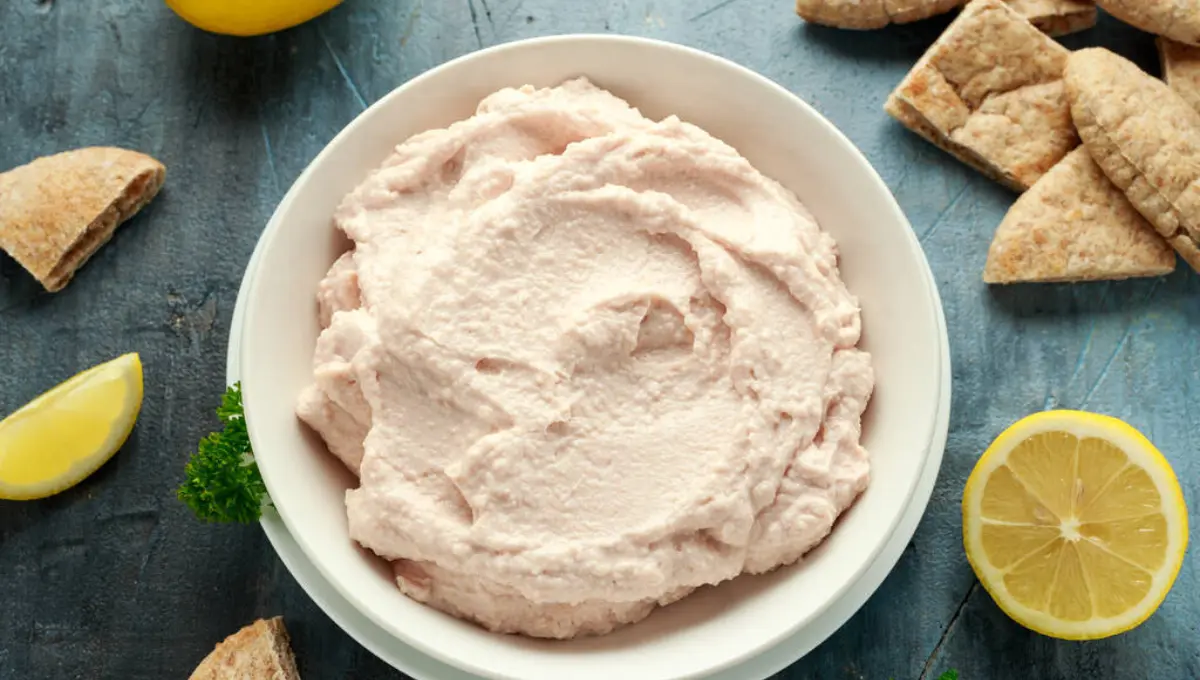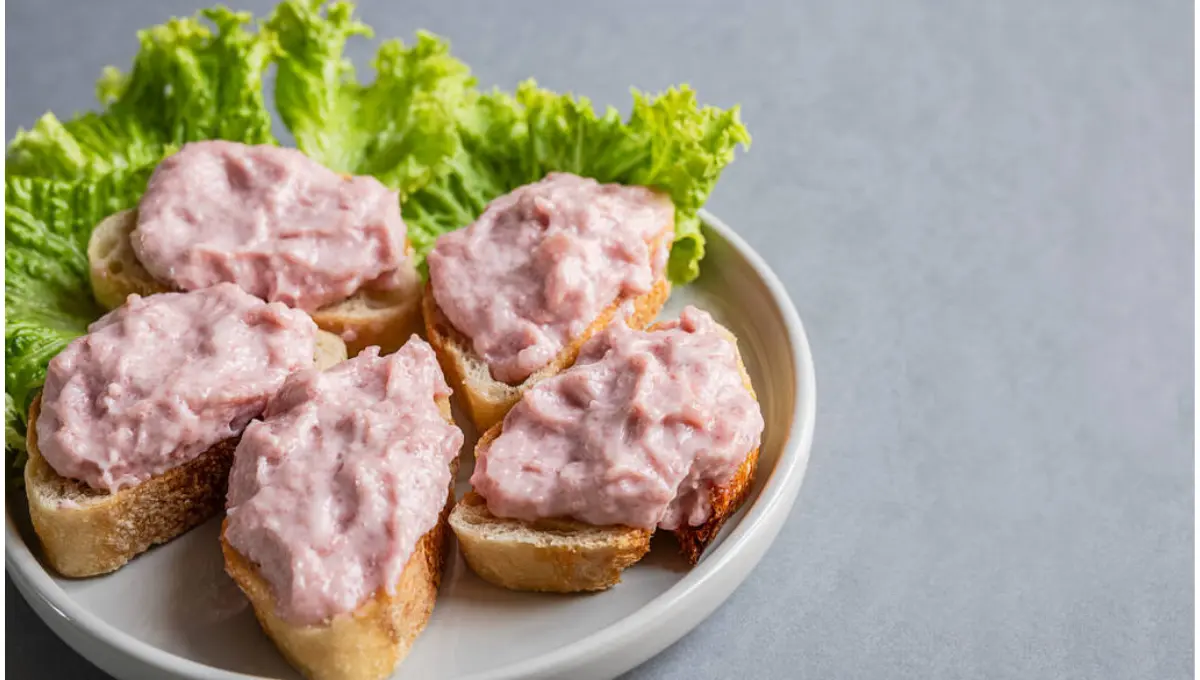
Ah, the joys and peculiar cravings of pregnancy! It’s a journey filled with unexpected twists and turns, isn’t it? One minute you’re craving pickles, and the next, a dish of taramasalata is calling your name. But wait a minute, is it safe to heed that call? Dive into the world of taramasalata when pregnant with us, exploring its nutritional aspects, potential risks, and scrumptious alternatives.
Related: Can You Safely Eat Crawfish While Pregnant?
Key Takeaways:
- Taramasalata is a popular Greek dip, often questioned for its safety during pregnancy.
- It’s crucial to weigh the nutritional benefits against potential risks when it comes to pregnancy diet.
- Expert opinions and real-life experiences can shed light on the practical aspects of consuming Taramasalata during pregnancy.
- Alternatives and precautions ensure that you don’t miss out on your favorite flavors while maintaining safety.
What is Taramasalata?
Taramasalata is a classic Greek appetizer (meze) and is often recognized by its delicate pink hue, which can range from light to a more vibrant pink. It’s a creamy, rich, and slightly salty dip, which is typically made from taramas, the salted and cured roe of fish, most commonly cod, carp, or grey mullet. The roe is mixed with either bread or potatoes, olive oil, lemon juice, and occasionally, garlic, onions, or herbs to enhance the flavor.
Related:Can You Eat Sausage When Pregnant?
what is the Nutritional value of Taramasalata?
Based on the information from MyFitnessPal, here’s a detailed nutritional breakdown of Taramasalata per 1 gram:
| Nutrient | Amount (per 1g) |
|---|---|
| Calories | 5 Cal |
| Protein | 0.1 g |
| Total Fat | 0.5 g |
| – Saturated Fat | 0.1 g |
| – Polyunsaturated Fat | 0.1 g |
| – Monounsaturated Fat | 0.3 g |
| Carbohydrates | 0.1 g |
| – Sugars | 0 g |
| Cholesterol | 0.9 mg |
| Sodium | 1.2 mg |
| Potassium | 0.9 mg |
| Vitamin A | 0 % |
| Vitamin C | 0.1 % |
| Calcium | 0 % |
| Iron | 0.1 % |
Nutritional Insights:
- Low in Carbohydrates: Taramasalata is quite low in carbs, making it suitable for low-carb diets.
- Healthy Fats: The presence of monounsaturated and polyunsaturated fats is beneficial for heart health.
- Low in Protein: It’s not a significant source of protein.
- Vitamins and Minerals: It doesn’t significantly contribute to the daily recommended intake of vitamins and minerals.
Considerations:
- Caloric Density: While 5 calories per gram might seem low, it’s crucial to consider portion sizes as the caloric content can quickly add up with larger servings.
- Sodium and Cholesterol: Even though the amounts per gram are low, mindful consumption is advised, especially for individuals monitoring their sodium and cholesterol intake.
Related:Is It Safe To Eat Lox While Pregnant?
Can You Eat Taramasalata When Pregnant?
The primary concern regarding eating taramasalata during pregnancy revolves around the fish roe, which needs to be pasteurized to be considered safe during pregnancy but such products are hard to find as most fish roes are only cured, not pasteurized. Unpasteurized roe may harbor harmful bacteria, posing potential risks to both mom and baby. So, if you’re eyeing that dish of taramasalata, ensure it’s made with pasteurized roe and indulge moderately, keeping in mind its rich caloric and sodium content.
what are the benefits of eating Taramasalata When Pregnant?

Eating Taramasalata during pregnancy can offer some nutritional benefits, given that it’s consumed safely (e.g., ensuring no raw fish roe is used). Here are some potential benefits:
1. Omega-3 Fatty Acids:
- Brain Development: Omega-3 fatty acids, particularly DHA, are vital for the brain development of the fetus.
- Eye Development: These fatty acids also play a crucial role in the development of the baby’s eyes.
- Heart Health: For the mother, omega-3s can help maintain heart health.
2. Healthy Fats:
- Energy Source: The healthy fats from olive oil provide a good source of energy, which is particularly needed during pregnancy.
- Absorption: Fats aid in the absorption of fat-soluble vitamins like A, D, E, and K, which are crucial during pregnancy.
3. Low in Carbohydrates:
- Blood Sugar: Low carbohydrate content can help in managing blood sugar levels, which is crucial to prevent gestational diabetes.
4. Vitamin C:
- Immunity: If lemon is used in the Taramasalata, it can provide Vitamin C, which is beneficial for both mother and baby’s immune systems.
- Iron Absorption: Vitamin C enhances the absorption of non-heme iron, helping to prevent iron-deficiency anemia during pregnancy.
5. Light and Easy to Digest:
- Digestive Health: Taramasalata is relatively light and can be easier to digest, which is beneficial considering some pregnant women experience digestive issues.
Related:Can Pregnant Women Eat Seaweed?
What are The Risks with eating taramasalata during pregnancy?
Here are some of the risks and considerations associated with consuming taramasalata while pregnant:
1. Risk of Foodborne Illnesses:
- Raw or Cured Fish Roe: Traditional taramasalata often uses raw or cured fish roe, which can harbor harmful bacteria like Listeria and lead to foodborne illnesses, which can be particularly dangerous during pregnancy.
2. High Sodium Content:
- Elevated Blood Pressure: Taramasalata can be high in sodium, which might contribute to elevated blood pressure, a condition that needs to be monitored closely during pregnancy.
- Edema: High sodium intake can also lead to water retention and swelling, common issues during pregnancy.
3. Allergic Reactions:
- Fish Allergies: If you have a fish allergy, consuming taramasalata, which contains fish roe, can trigger allergic reactions.
- Ingredient Sensitivities: Some people might have sensitivities to other ingredients used in taramasalata, such as lemon, onions, or garlic.
4. Nutritional Balance:
- Caloric Density: Taramasalata is quite calorie-dense, mainly due to its olive oil content, and managing caloric intake is crucial during pregnancy to avoid excessive weight gain.
- Cholesterol: The fish roe in taramasalata can be high in cholesterol, which might be a consideration for those managing their cholesterol levels.
5. Ethical and Sustainability Concerns:
- Sustainable Practices: Depending on the source of the fish roe, there might be concerns regarding sustainable fishing practices and the impact on fish populations.
6. Dietary Restrictions:
- Vegetarian/Vegan Diets: Taramasalata is not suitable for those following vegetarian or vegan diets due to the inclusion of fish roe.
7. Flavor and Aroma Sensitivity:
- Strong Flavors: Some pregnant women may find the distinct, robust flavor of taramasalata off-putting due to heightened senses during pregnancy.
- Aroma Sensitivity: The aroma of taramasalata might also be too strong for some pregnant women, who often experience heightened sensitivity to smells.
Related:Can You Safely Eat Takis While Pregnant?
What are Safe Alternatives to Taramasalata in Pregnancy?

When considering safe alternatives to taramasalata during pregnancy, it’s essential to prioritize options that minimize the risk of foodborne illnesses and align with nutritional needs. Here are some safe and nutritious alternatives:
1. Hummus:
- Why: Rich in protein and fiber, hummus provides a creamy texture similar to taramasalata.
- Tip: Opt for homemade or store-bought versions without added preservatives.
2. Guacamole:
- Why: Avocados offer healthy fats and a creamy consistency.
- Tip: Ensure all ingredients are fresh and well-washed to avoid contamination.
3. Greek Yogurt Dip:
- Why: Greek yogurt is a good source of calcium and protein.
- Tip: Add fresh herbs and garlic for flavor, ensuring they are well-washed.
4. Baba Ganoush:
- Why: Made from roasted eggplants, it provides a smoky flavor and smooth texture.
- Tip: Ensure all ingredients are cooked thoroughly and it’s stored properly.
5. Cottage Cheese Dip:
- Why: Cottage cheese is lower in fat and provides a good source of protein.
- Tip: Add fresh, well-washed veggies or herbs for added flavor and nutrients.
6. Bean Dip:
- Why: Beans are rich in protein and fiber, providing a hearty alternative.
- Tip: Opt for well-cooked beans and ensure all added veggies are fresh and clean.
7. Pesto:
- Why: Pesto can provide a rich and flavorful alternative without the risks associated with raw ingredients.
- Tip: Ensure all fresh ingredients like basil are well-washed.
8. Tzatziki:
- Why: Made with yogurt, cucumber, and herbs, it’s a refreshing dip.
- Tip: Use pasteurized yogurt and ensure all veggies are clean.
9. Nut Butters:
- Why: Nut butters like almond or peanut butter provide healthy fats and protein.
- Tip: Opt for versions without added sugars or preservatives.
10. Olive Tapenade:
- Why: Olives provide healthy fats and a robust flavor.
- Tip: Ensure all added ingredients are safe and pregnancy-friendly.
Related:Can You Eat Sausage When Pregnant?
How Can One Ensure Taramasalata is Safe to Consume When Pregnant?
Ensuring that taramasalata is safe to consume during pregnancy involves considering the ingredients, preparation methods, and storage conditions to minimize potential risks. Here are some tips on how to ensure taramasalata is safe to consume when pregnant:
1. Use Pasteurized Roe:
- Why: Pasteurized roe has been heat-treated to kill harmful bacteria without cooking it completely.
- Tip: Check labels or inquire about pasteurization when purchasing.
2. Homemade Version:
- Why: Making taramasalata at home allows you to control the ingredients and ensure safe handling.
- Tip: Consider using cooked, smoked, or pasteurized fish roe to avoid raw ingredients.
3. Avoiding Raw Ingredients:
- Why: Raw or undercooked ingredients can harbor harmful bacteria.
- Tip: Ensure that all ingredients, including eggs (if used), are cooked or pasteurized.
4. Proper Storage:
- Why: Proper storage prevents the growth of harmful bacteria.
- Tip: Store taramasalata in the refrigerator and consume it within the recommended timeframe.
5. Hygienic Preparation:
- Why: Ensuring cleanliness during preparation minimizes contamination risks.
- Tip: Wash hands, utensils, and surfaces thoroughly and ensure all ingredients are clean.
6. Check Expiry Dates:
- Why: Consuming fresh products minimizes the risk of food poisoning.
- Tip: Always check the expiry date on store-bought taramasalata and consume promptly once opened.
7. Mindful of Allergens:
- Why: Ensuring no allergic reactions to fish or other ingredients.
- Tip: Be aware of any food sensitivities or allergies and read labels carefully.
8. Consult Healthcare Professionals:
- Why: To get personalized advice based on your health and pregnancy.
- Tip: Discuss with your doctor or dietitian about including taramasalata in your pregnancy diet.
9. Taste and Smell:
- Why: Ensuring the product has not gone bad.
- Tip: If the taramasalata smells off or has an unusual color, do not consume it.
10. Purchase from Reputable Sources:
- Why: To ensure quality and safe handling practices.
- Tip: Buy taramasalata from trusted retailers or restaurants that adhere to food safety guidelines.
Related:Can I Safely Eat Burrata During Pregnancy?
What Do Experts Say About Consuming Taramasalata During Pregnancy?
Experts and various sources highlight several considerations regarding the consumption of taramasalata during pregnancy, primarily focusing on the safety and preparation of its main ingredient, fish roe. Here are some key insights based on the information from Pregnancy Food Checker:
1. Safety Concerns with Fish Roe:
- Traditional taramasalata is often made with raw or cured fish roe, which can pose a risk of bacterial contamination, such as Listeria.
- Listeria can cause food poisoning and potentially lead to stillbirth, miscarriage, or other severe complications during pregnancy.
2. Pasteurization is Crucial:
- Taramasalata made with pasteurized fish roe is considered safe during pregnancy as pasteurization kills harmful bacteria.
- However, finding brands that use pasteurized roe can be challenging, as many use only cured or salted roe.
3. Homemade Taramasalata:
- Making taramasalata at home allows control over the ingredients and their safety.
- It’s crucial to use thoroughly pasteurized fish roe to ensure safety from bacterial contamination.
4. Listeria Risks:
- Pregnant women are particularly susceptible to Listeria, being ten times more likely to contract it compared to other adults.
- Listeria is resilient and can survive in refrigerated conditions, making it crucial to ensure all ingredients are safe and handled properly.
5. Nutritional Considerations:
- While fish roe can be nutritious, it’s also essential to consider its safety during pregnancy, ensuring it is free from harmful bacteria and contaminants.
6. Recontamination Risks:
- Even after pasteurization, recontamination can occur at any stage, so rigorous processing and handling practices are vital.
What is the Final Verdict on Eating Taramasalata when Pregnant?
No, consuming traditional taramasalata, which often contains raw fish roe, is not universally recommended during pregnancy due to potential risks of bacterial and parasitic contamination. However, versions made with pasteurized or cooked roe might be considered safer when consumed in moderation. Always consult healthcare professionals for personalized advice, ensuring the safety and well-being of both the mother and the baby during pregnancy.
Related:Can You Safely Eat California Rolls While Pregnant?
Conclusion
In conclusion, taramasalata, a dip often made with raw fish roe, is not universally safe for consumption during pregnancy. While the dish is rich and flavorful, traditional taramasalata is typically not made with pasteurized fish roe, posing a risk of bacterial contamination, such as Listeria, which can have severe consequences for pregnant women and their unborn children. Although taramasalata can be made with safe, pasteurized roe, such products are not commonly available, and thus, homemade versions or those made with thoroughly pasteurized roe are recommended if consumption is desired. Always prioritize safety and consult healthcare professionals for tailored dietary advice during pregnancy.
Frequently Asked Questions (FAQs)
What is taramasalata made of?
Taramasalata is a Greek dip made from fish roe, olive oil, lemon juice, and either bread or potatoes.
Why is it crucial to consume pasteurized roe during pregnancy?
Pasteurized roe reduces the risk of harmful bacteria, safeguarding the health of both mother and baby.
Can taramasalata be made at home?
Absolutely! Homemade taramasalata allows you to control the ingredients, ensuring they are safe for consumption during pregnancy.
What are some safe alternatives to taramasalata during pregnancy?
Opt for dips and spreads made with cooked or pasteurized ingredients, such as hummus or guacamole.
How can I manage my sodium intake while consuming taramasalata?
Enjoy taramasalata in moderation and be mindful of other sodium sources in your diet to manage intake.
Is taramasalata a healthy option?
While it does contain healthy fats from olive oil, taramasalata can be high in calories and sodium, so it’s best enjoyed in moderation.






